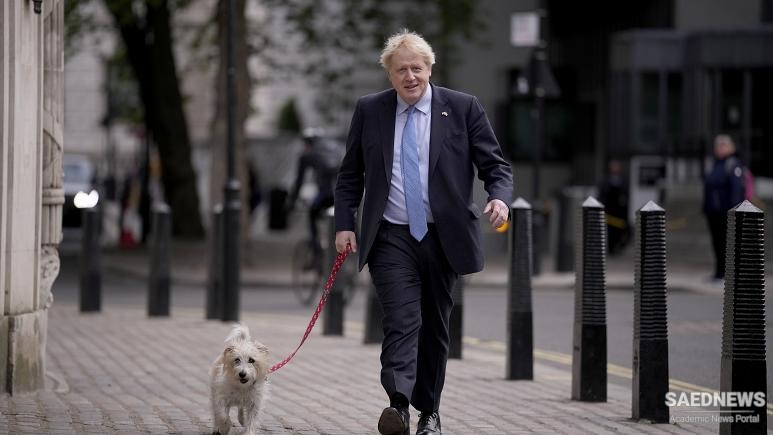London, SAEDNEWS: The prime minister has been fighting for his political survival for months as evidence mounted that he broke his own COVID-19 lockdown rules. He's already received one police fine, with the possibility of more following.
Meanwhile, a sharp rise in global energy prices is being felt in the shops, having already pushed up utility bills. Johnson's government has been criticised over its response to the crisis.
In Northern Ireland, the elections will also test the stability of fragile power-sharing arrangements, with polls suggesting the Irish nationalists Sinn Fein could emerge as the largest party.
The results in the UK territory could also impact British policy toward post-Brexit trading rules. The Johnson government's hostility towards the arrangements set out in the Brexit divorce treaty has aggravated tensions with the European Union.
Cost of living puts Johnson under pressure
The council elections do not cover the whole of the UK, with many areas having voted in previous years. More than 4,400 English councils are up for grabs, including all London boroughs. All local authorities in Wales and Scotland are also holding elections.
Although the British government's majority in parliament is not affected, poor results for the ruling Conservatives would put Johnson under further pressure.
The prime minister's critics might be emboldened as they wonder whether he is the right leader going into the next general election that must be held by late 2024.
The main opposition Labour Party has been focusing its criticism on the government's response to the cost-of-living crisis.
An analysis by pollster Find Out Now and political consultancy Electoral Calculus suggested the Conservatives could lose some 800 council seats and Labour could gain control of about 20 councils.
Results are expected from the early hours of Friday.
Northern Ireland power-sharing at stake
In Northern Ireland, Sinn Fein could well become the first Irish nationalist party to win the most seats.
Support for the former political wing of the IRA stood at an average of 25% across the final campaign polls, with a six-point lead over their nearest rival, the pro-British Democratic Unionist Party (DUP).
The main unionist party has said it will no longer share power with nationalists under the terms of the 1998 peace deal unless the Brexit protocol covering trade with the rest of the UK is overhauled.
London and Brussels have been at loggerheads over checks on goods entering Northern Ireland from the rest of the UK. These are required under the divorce treaty, to protect the EU single market given the open land border with Ireland.
Anger in pro-British communities that the protocol erodes their place in the UK looks set to fracture the unionist vote. The DUP has been losing some support to the smaller and more hardline Traditional Unionist Voice (TUV).
But a strong performance by Sinn Fein would reinforce support for the protocol, while unionist divisions could also benefit the cross-community Alliance Party.
A majority in Northern Ireland voted to remain in the EU in Britain's 2016 Brexit referendum (Source: Euronews).


 Ukrainian Neptune Destroys Putin's Cruiser at Black Sea
Ukrainian Neptune Destroys Putin's Cruiser at Black Sea














































